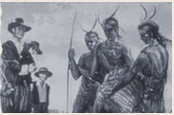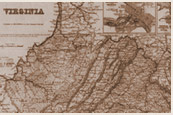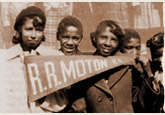"He Kept Us Out of War" - Peace Without Victory
PBS: The American Experience
"He Kept Us Out of War" - Declaration of Neutrality
PBS: The American Experience
"He Kept Us Out of War" - Second Inaugural Address
Avalon Project at Yale Law School
Description: The American desire for neutrality and peace when war broke out in Europe underlies these three resources. The first document is the text of Wilson's speech to the U.S. Congress in which he articulated the policy of neutrality which he would pursue till the end of his term, and during his campaign for re-election. The second source is Wilson's address to the Senate in which he reports on his efforts to negotiate terms of peace between those nations at war with each other. The third resource gives his second inaugural address, in which discerning students can trace the hints that Wilson may be contemplating something less than complete neutrality regarding the European belligerents.
Teaching Tips:
"Do Now" Suggestion
- Choose an excerpt, from each of the three documents, that deals with the United States' policy toward the conflict in Europe. Without revealing the author or the dates of these excerpts, ask the students to read them carefully and attempt to place them in chronological order. Discuss the change and progression in US foreign policy that these excerpts reveal.
- While the 2nd Inaugural Address was not a declaration of war, the language of this address is different from that of Wilson's Declaration of Neutrality and his Peace Without Victory speech. The students can carefully read the three documents to compare and contrast. They can record their ideas in a Differences/Similarities Organizer. This process can be a springboard to a discussion on the events that occurred between August on 1914 and March of 1917, which led to Wilson changing ideas.



